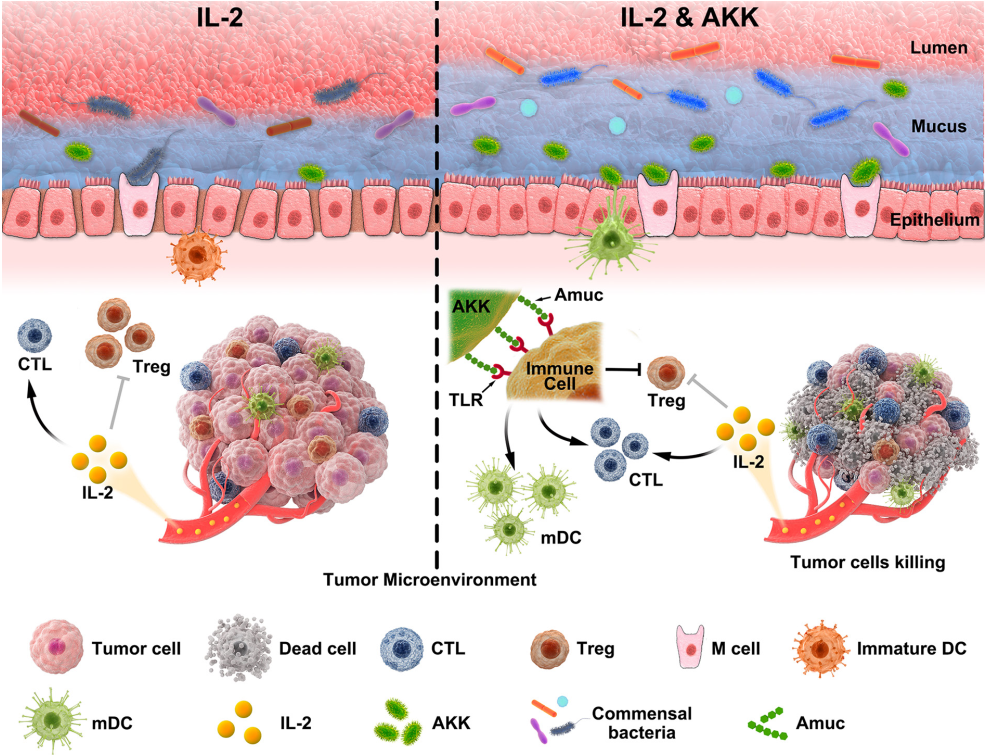On Oct 8, a research paper entitled “Combining IL-2-based immunotherapy with commensal probiotics produces enhanced antitumor immune response and tumor clearance” has been published in Journal for ImmunoTherapy of Cancer (IF: 9.913), a leading journal of Society for Immunotherapy of Cancer, which was performed by Prof. Zhi Liu and Prof. Xiangliang Yang ’s group from College of Life Science and Technology, Huazhong University of Science and Technology.
Interleukin-2 (IL-2) serves as a pioneer of immunotherapeutic agent in cancer treatment. However, there is a considerable proportion of patients who cannot benefit from this therapy due to the limited clinical responses and dose-limiting toxicities. Mounting evidence indicates that commensal microbiota shapes the outcome of cancer immunotherapies. In this study, we aim to investigate the enhancing effect of Akkermansia muciniphila (AKK), a beneficial commensal microbe receiving considerable attentions, on the antitumor efficacy of IL-2 and explore the underlying molecular mechanism.

In the current study, therapeutic efficacy of combined treatment with IL-2 and AKK was evaluated in colorectal cancer (CRC) patient-derived tumor tissues and B16F10 or CT26 tumor-bearing mice. Accordingly, alterations of tumor microenvironment among different groups were investigated and the underlying mechanism of the antitumor immune response induced by AKK was further explored. Furthermore, the protective effects of AKK treatment on gut barrier and commensal microbiota homeostasis were studied in the context of IL-2-based immunotherapy. Collectively, these findings provide the first basis that combination treatment of IL-2 and AKK is an effective and safe therapeutic strategy with potential clinical applications, thus shedding new lights on cancer immunotherapy.
This work was accomplished by team members of Prof. Zhi Liu and Prof. Xiangliang Yang ’s lab. Prof. Zhi Liu and Prof. Xiangliang Yang from Huazhong University of Science and Technology, and Prof. Bixiang Zhang from Tongji Hospital are the co-corresponding authors. Huazhong University of Science and Technology is the first author unit. This research was supported by the National Key Research and Development Program and the National Natural Science Foundation of China.